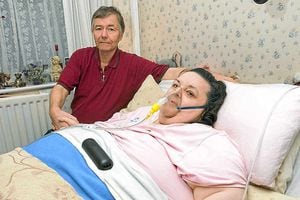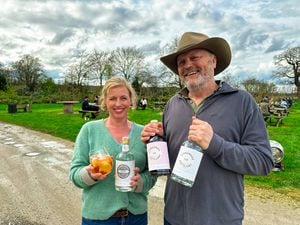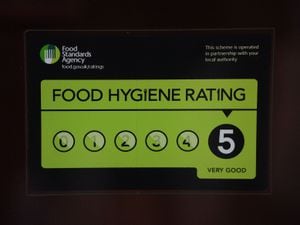TV review: Big Body Squad
British adults are on average 30lbs fatter than those in the rest of the world, obesity is costing the NHS £16 million a year and one third of children are classed as obese with 300 a year diagnosed with Type 2 diabetes.

It's a sobering thought, and one which is tackled in the latest series of Big Body Squad.
The Channel 5 show takes a look at the lives of just some of the every day people in the country living with obesity and also the role of the emergency services, their families and specialist organisations and how they play a part in dealing with the issue.
It can be easy to sit back and judge overweight people, especially without knowing the circumstances, but Big Body Squad takes a personal look at the lives of those living with obesity.
From the trigger of losing a close family member, to health problems, last night's show was a real eye-opener into how health problems can spiral out of control into what has become a chronic problem.
The programme first saw Denise from Tamworth. A former nurse, Denise now weighs in at almost 40 stone, has not left her house for almost seven years and relies on others for everyday care after damaging her back.
Along with her husband Eddie who works tirelessly to ensure his wife has the best of care, as well as her two carers Linda and Andrea, who have become close personal friends, tasked with the most intimate of duties, such as taking care of Denise's personal hygiene, the mother spoke of how helpless she felt with her situation.
Denise said: "I just feel as if everything has been taken away from me.
"I just miss not being able to be a wife and a mother the way that I used to be. The last 12 months I have been stuck in this room and I can't get out."
The show also provided an insight into behind the scenes work being carried out.
There are now more than 800 supersize ambulances on our roads helping people like Carole, who is stuck in her top floor flat.
Since her weight and a damaged tendon combined to leave her trapped in her house, she has come to rely on her local ambulance company.
Despite a struggle to both behold and for the team, the gratitude of 20-stone Carole as the team manoeuvred her up and down the tight staircase was absolute.
As well as the supersize ambulances with special stretchers that can carry 50 stone patients and ramps that can hold the weight of more than 70 stone, the work of specialists who make made to measure larger shoes to get people mobile was also featured.
As orthotist Philippa Robinson tells us, the shoes cost £200 – £600 on the NHS, £1,000 if made privately, but come in far cheaper than the £60,000 an amputation would cost if patients did not have access to the service.
But diabetic patient Elsa, who struggles to walk without the specially-made shoes, said: "If I didn't have Philippa I wouldn't be able to get out at all."
And then there was 17-year-old Callum – whose weight spiralled to 35 stone after the death of his grandmother.
The teenager was attending a special six week lifestyle camp – at which he lost two stone – and the look on his face when he finally completed a two mile run and vowed to return the next year to continue with his weight loss was priceless.
Obesity is a massive problem, with a strain not only on the emergency services, but families, finances, not to mention the emotional toll on those involved.
But one thing that struck me about last night's subjects was the gratitude and also helplessness of those involved.
But the whole way the care and professionalism and encouragement of the experts was a credit to all those involved in doing all they can to fight the problem.
Lisa Wright





